- Home
- Company
- Our Services
Odoo Services
ERP Services
- Odoo Apps
- Our Industries
- Locations
- Resources
- Contact us
Call us today!
+91 93422 58771
- Home
- Company
- Our Services
Odoo Services
ERP Services
- Odoo Apps
- Our Industries
- Locations
- Resources
- Contact us
Call us today!
+91 93422 58771

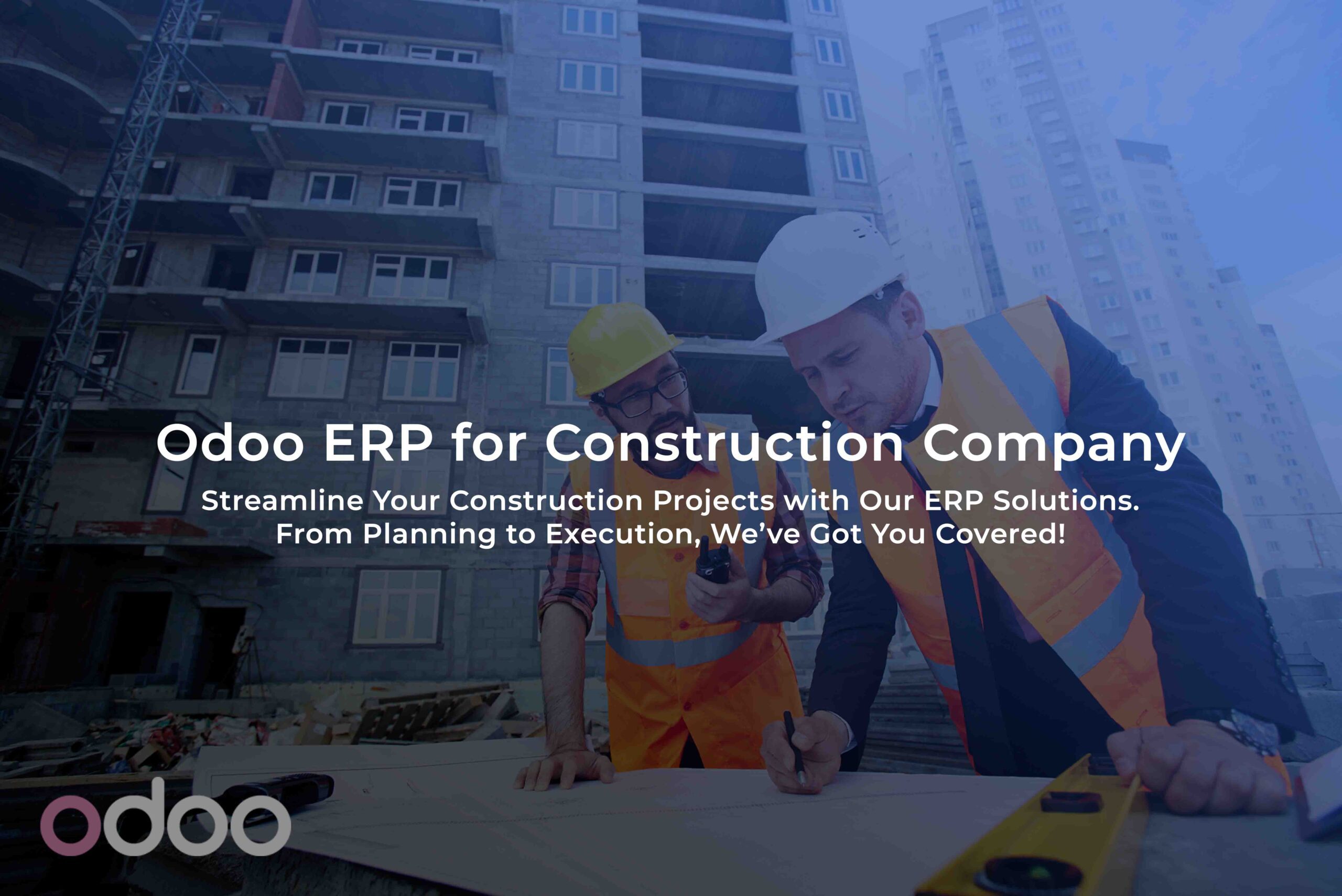
Greetings from Banibro, the place to go if you want to fully utilize Odoo ERP in the construction sector. Our customized Odoo for Construction service is designed to satisfy the particular requirements of construction firms, providing a full range of options for effective project management. Banibro guarantees smooth project execution and collaboration, from resource allocation to project planning. Discover the advantages of Odoo for construction management, including improved project visibility, streamlined communication, and real-time insights. With an emphasis on Odoo construction management and providing specialized solutions for construction companies, you can rely on Banibro to be your partner in transforming the way you plan and carry out construction projects.
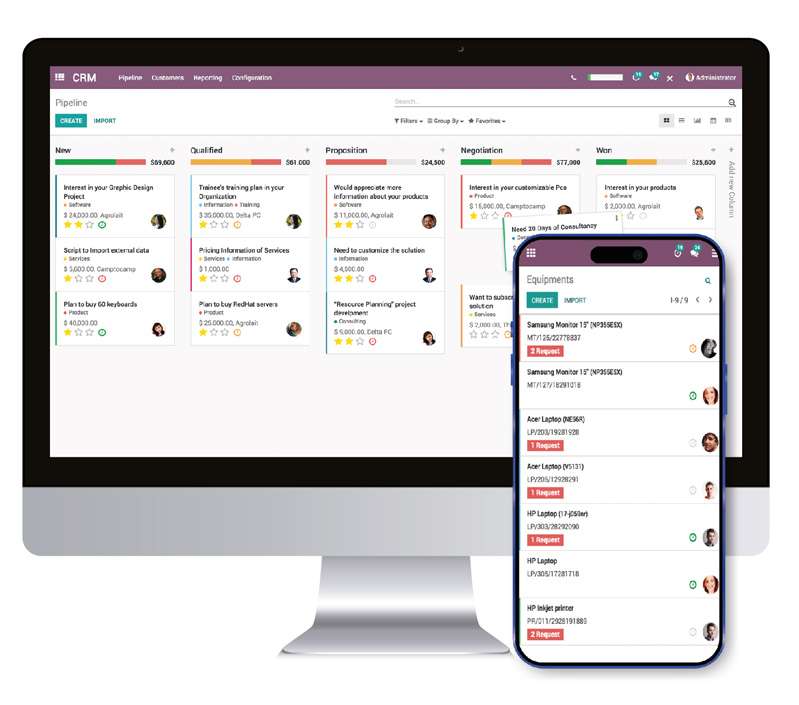










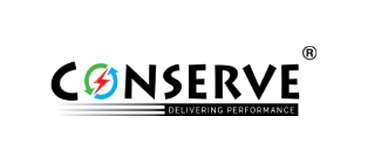


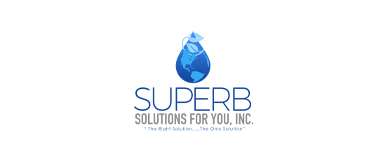


The PPC module of the Odoo Construction Management software helps in the Budgeting, Estimation, Planning and Execution of the Construction Project. With the PPC module of Odoo Construction management software, you can also keep a track of the proposed versus actual project completion status.

HRMS is an excellent option for creating a unique enterprise module for human resource management. With the help of Odoo, the company’s HRMS department can efficiently manage all of these tasks.
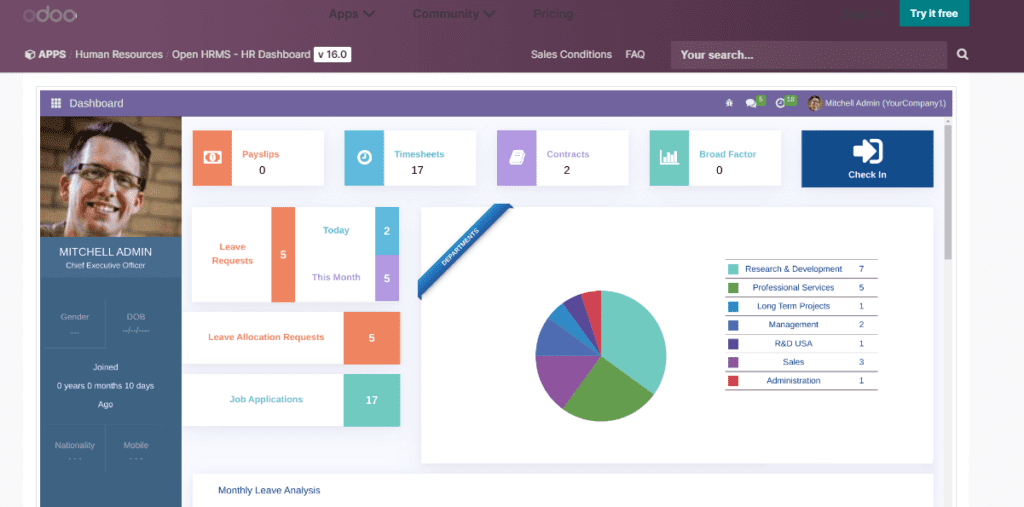
Accounting helps companies to manage their daily accounting with the utmost ease and simplicity. They even offer a global view of the state of their business at any time

Odoo Budget Management allows you to create and manage budgets based on analytic account/project for job contracting and construction

The Contracting module of the Odoo Construction Management software helps in sub-contract management for the development of projects. Also, the Odoo Construction management software helps you in departmental labor billing based on hours worked.
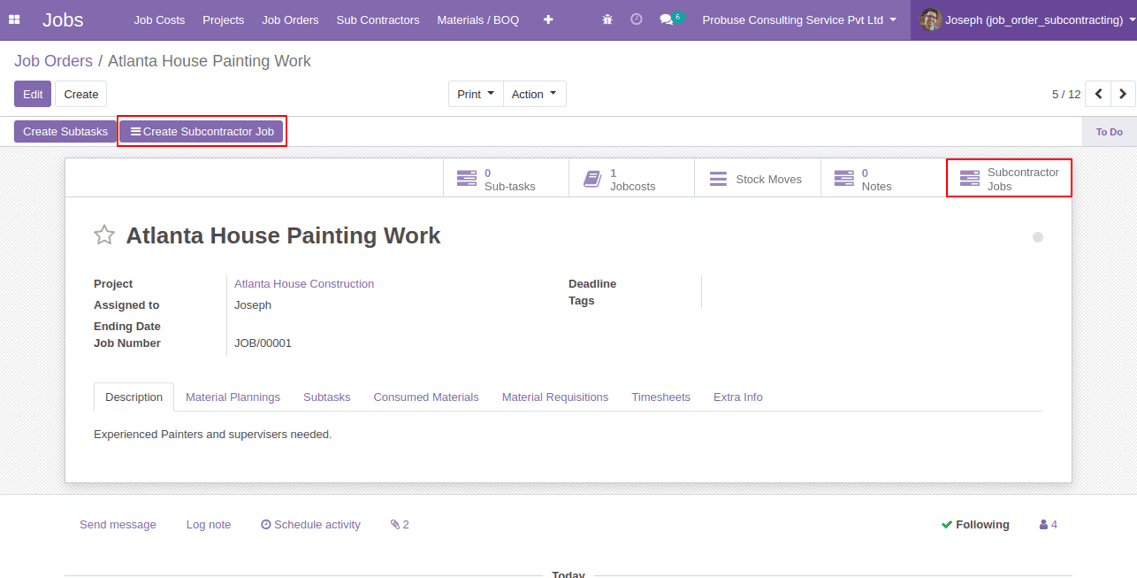
Odoo Inventory manages the raw materials, product movement for the construction process. Moreover, it manages the entire storage of the finished products in the definite location of the warehouses with the following pieces
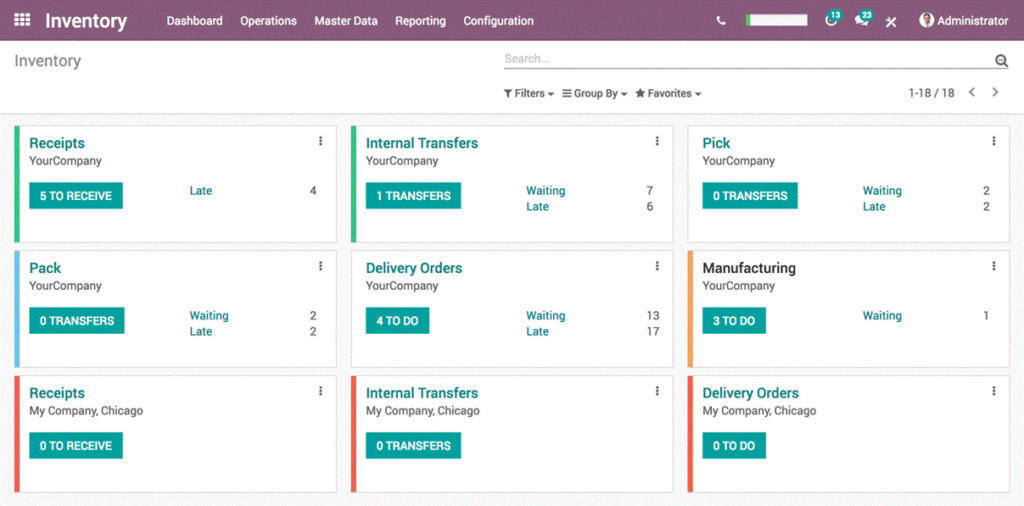
The procurement module of the Odoo Construction Management software helps in purchase of materials and tracking of supplier invoices and also it helps in proper handling of taxes and other compliance costs.

Implementing Odoo ERP for Construction Efficiency About Client Our client is based on the construction industry with proficiency in commercial and residential projects. With their strong roots in this industry they were moving with accelerated…
Construction companies typically have complex and multi-faceted operations, and ERP software can help streamline these operations, reduce manual errors, and improve efficiency. It can also provide greater visibility into business operations and help companies make better decisions.
Key features of ERP software for construction companies may include project management, job costing, scheduling, budgeting, equipment management, inventory management, financial management, and reporting.
ERP software can help with project management by providing a centralized platform for tracking project progress, managing resources, and communicating with stakeholders. It can also help with budgeting, scheduling, and forecasting, which are important aspects of project management.
Yes, ERP software can help with equipment management by providing a centralized platform for tracking equipment usage, maintenance, and availability. This can help companies reduce downtime, improve maintenance planning, and optimize equipment utilization.
Benefits of using ERP software for construction companies may include increased efficiency, reduced costs, improved data accuracy, better decision-making, increased collaboration, and greater visibility into business operations.
The cost of ERP software for construction companies can vary widely depending on factors such as the size of the company, the specific features needed, and the vendor chosen. Some vendors may offer pricing based on a monthly subscription model, while others may offer perpetual licenses. It’s important to carefully evaluate pricing and features before choosing a vendor.
When choosing ERP software for your construction company, it’s important to evaluate factors such as the specific features needed, ease of use, integration capabilities, vendor reputation, and cost. You may also want to consider demoing the software and speaking with other companies in your industry who have used the software before making a final decision.
ERP software can improve collaboration within a construction company by providing a centralized platform for communication and data sharing. For example, project managers and team members can use the software to collaborate on project planning, scheduling, and budgeting, while accounting and finance teams can use the software to manage financial data and communicate with other departments.
Yes, construction-based ERP software can help with bidding and estimating by providing tools for creating and tracking project bids, estimating costs, and managing the bidding process.
Construction-based ERP software can help with equipment rentals by providing tools for tracking rental agreements, managing equipment availability, and scheduling equipment usage. This can help companies optimize equipment utilization and reduce equipment-related downtime.